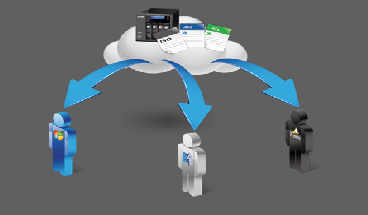File Sharing is Not a Crime
In the past few years, we’ve seen a lot of proposals made by Congress and private interest groups in attempt to combat peer-to-peer file sharing with restrictive internet policy. These proposals, put forward by Stop Online Piracy Act (SOPA) to Program on International Policy Attitudes (PIPA) to Cyber Intelligence Sharing and Protection Act (CISPA), have all failed under a myriad of negative public opinion, stemming from a user base that is not ready to see the internet become just another arm of public and/or private sphere of influence.
One of the greatest things about the internet is the unregulated nature of many online communities. Most websites are self-regulated by the owner of the domain, allowing communities, defined by the anonymity of their users, to engage in activities not possible in the real world.
File sharing is one such activity that has actually brought exposure and growth to many industries outside the internet, particularly the music industry. The ability to swap music with people both cheaply and freely has brought publicity to many artists who may have previously gone unnoticed. It’s easier than ever to gain an audience as a musician these days, because file sharing has allowed communities to spread music at unprecedented efficiency. It has also counteracted the negative effects that large record labels like Atlantic Records are having on the music industry.
In the past, label directors have stifled creativity by essentially buying bands out of their own creations, and using policies aimed at maximizing profit instead of benefitting the artists. Bands such as Streetlight Manifesto, Circa Survive, Bomb the Music Industry, and Verse that have been schwindled by their record labels have taken stands by forming their own labels and offering their music online for free. The process has not only proved to be an efficient way of spreading new music, but allows us to see which artists are in it for the love of music and which are in it for money and fame.
Even in the TV and film industries, file sharing has helped bring creativity and life to an industry that was beginning to become monotonous and stale.
Kelly Merryman, a chief executive of Netflix, recently admitted that the company looks to see which shows and movies are being pirated the most when deciding on new titles to add. James Cameron, of Avatar and Titanic fame, has yielded that profits off of film are best made at the box office, not in home DVD sales, and that file sharing has challenged film makers to bring a better product to the big screen so more people will choose to go to the theatre over staying home. HBO’s Game of Thrones, which was the most pirated show in 2012, is still one of the most profitable shows on television, not to mention one of the most positively reviewed.
It’s easy to see why so many people have an issue with file sharing.
As the law is written right now, it’s stealing to seed a torrent of The Pirate Bay, or send a movie to a friend with Rapidshare, or download an album from Mediafire. I’m sure everyone remembers that brainwashed commercial that asked “you wouldn’t steal a car, would you?” This kind of mentality is a result of decades of careful manipulation by media industries to create a strictly regulated marketplace, one where prices aren’t set by supply or demand but rather by finding out how much a customer will overpay for a product.
The internet has begun to shatter this mentality, and while the special interests and their puppets in Congress continue to falsely believe that pieces of legislation can get things back to the way they were, the reality is that file sharing will never leave the internet. Moving forward, the T.V., movie, and film industries would benefit from embracing file sharing, the way many already have, and work to build an industry with more consumer freedom and greater innovation.




